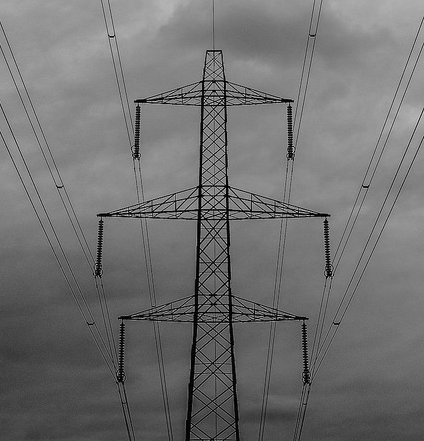Iran
See the following -
Electromagnetic Pulse Caucus Battles Skeptics In Push To Protect The Planet
Doomsday preppers or congressional visionaries? A small but growing cadre of House members is set to relaunch efforts to protect the nation against what they say is a very real threat: the unleashing of an electromagnetic pulse either by a solar storm or a nuclear-armed foe that could cripple much of the nation’s electrical infrastructure. Read More »
- Login to post comments
How The Iraq War Crippled U.S. Military Power
...The decline of American military influence actually began with 9/11 and the reflexive response to a growing threat the U.S. government never completely understood. It was exacerbated by the impetuous decision to go to war against Iraq in March 2003....
- Login to post comments
Obama Lets NSA. Exploit Some Internet Flaws, Officials Say
Stepping into a heated debate within the nation’s intelligence agencies, President Obama has decided that when the National Security Agency discovers major flaws in Internet security, it should — in most circumstances — reveal them to assure that they will be fixed, rather than keep mum so that the flaws can be used in espionage or cyberattacks, senior administration officials said Saturday. But Mr. Obama carved a broad exception for “a clear national security or law enforcement need,” the officials said, a loophole that is likely to allow the N.S.A. to continue to exploit security flaws both to crack encryption on the Internet and to design cyberweapons.
- Login to post comments
Successful Hacker Attack Could Cripple U.S. Infrastructure, Experts Say
A report tying the Chinese military to computer attacks against American interests has sent a chill through cyber-security experts, who worry that the very lifelines of the United States — its energy pipelines, its water supply, its banks — are increasingly at risk. Read More »
- Login to post comments
The Stuxnet Leaker Might Be the General Credited with Getting It Started
The Obama administration's investigation into the leak of classified information on Stuxnet, a U.S. cyberattack targeting Iran's nuclear programs, has zeroed in on retired Marine General James Cartwright. As in, the general credited with presenting the idea of Stuxnet to the White House in the first place.
- Login to post comments
U.S. Missile Defense Strategy Is Flawed, Expert Panel Finds
After two years of study, a panel of top scientists and military experts working for the National Research Council has concluded that the nation’s protections against missile attacks suffer from major shortcomings, leaving the United States vulnerable to some kinds of long-range strikes. Read More »
- Login to post comments
US Utility Companies Warned About Potential for a Cyberattack After Ukraine’s
 The Obama administration has warned the nation’s power companies, water suppliers and transportation networks that sophisticated cyberattack techniques used to bring down part of Ukraine’s power grid two months ago could easily be turned on them. After an extensive inquiry, American investigators concluded that the attack in Ukraine on Dec. 23 may well have been the first power blackout triggered by a cyberattack — a circumstance many have long predicted...
The Obama administration has warned the nation’s power companies, water suppliers and transportation networks that sophisticated cyberattack techniques used to bring down part of Ukraine’s power grid two months ago could easily be turned on them. After an extensive inquiry, American investigators concluded that the attack in Ukraine on Dec. 23 may well have been the first power blackout triggered by a cyberattack — a circumstance many have long predicted...
- Login to post comments
VA Networks Besieged By Foreign Attackers, IG Says
Foreign attackers have repeatedly penetrated Veterans Affairs Department networks for at least the past three years, potentially gaining access to millions of unencrypted veterans records and other sensitive databases, according to House lawmakers and VA inspector general auditors. Read More »
- Login to post comments
We’re Not No. 1! We’re Not No. 1!
...a major new ranking of livability in 132 countries puts the United States in a sobering 16th place. We underperform because our economic and military strengths don’t translate into well-being for the average citizen. In the Social Progress Index, the United States excels in access to advanced education but ranks 70th in health, 69th in ecosystem sustainability, 39th in basic education, 34th in access to water and sanitation and 31st in personal safety...
- Login to post comments
Why Wars Always End Up Hurting The Most Vulnerable Americans
The impending anniversary of the start of World War I has given historians and pundits the chance to speculate about whether we’re heading for another era of mass war and redrawing of borders...But as we prepare to dwell on the ghastliness that occurred overseas between 1914 and 1918, it’s worth pausing to reflect on the ghastliness that occurred over here...
- Login to post comments